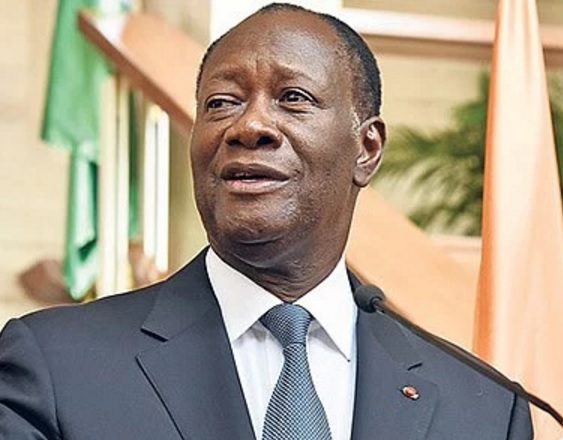
Abidjan, Ivory Coast | AFP |
Ivory Coast heads to the polls Sunday for a referendum on a new constitution their president insists will heal a nation beset by violent turmoil, but which the opposition says is dangerously anti-democratic.
Given that President Alassane Ouattara’s political foes have called for a boycott, the draft basic law is almost certain to garner a majority “yes” vote.
What is less likely is massive voter turnout: while Ivory Coast’s political class has been heatedly debating the draft, ordinary citizens have shown considerably less enthusiasm, either for or against it.
Ouattara is the driving force behind the draft and he has said that, if adopted, it would “definitively turn the page on successive crises” in Ivory Coast.
“Yes to peace, to modernity,” read the government’s campaign posters displayed across the West African state.
But last week’s suspension of two opposition newspapers and brief detention of several protesting politicians underlines the potential for trouble.
Years of unrest
By Ouattara’s telling, the new constitution would do away with the nationalistic concept of “Ivoiriete”, which roughly translates as “Ivorian-ness”.
It is a key issue in a nation with a population, especially in the north, that includes large numbers of people with roots in neighbouring states.
The question of who is a “real Ivorian” has contributed to years of unrest, including a coup in 1999, a civil war in 2002 that split the country between its north and south, and a violent post-election crisis in 2011.
As a result of the most recent bloodshed, former president Laurent Gbagbo is currently detained by the International Criminal Court in The Hague on charges of crimes against humanity.
Key changes
One of the key changes in the new text is the removal of a clause stipulating that presidential candidates must be born to parents who are Ivorian citizens.
In the past, this clause prevented Ouattara himself, because of his parental links to Burkina Faso, from running for the country’s top office.
He eventually overcame this obstacle through a decree Gbagbo was pressured to sign by the international community.
The proposed new constitution also calls for the creation of the post of vice president, who would appear on the ballot with presidential candidates.
For the government, it would ensure continuity if the head of state dies or is incapacitated. But the opposition sees the change a “monarchistic tactic”.
If the draft passes into law, Ouattara would immediately appoint a vice president, a measure that has sparked speculation he is trying to line up a successor for when his term ends in 2020.
The draft also establishes a new legislative chamber in the form of a senate, two-thirds of whose members would be elected, with the remaining third appointed by the head of state.
This presidential prerogative is one of the opposition’s several gripes about the new chamber.
Locked out
More broadly, the opposition complains that it, and civil society, played no part in the drafting of the proposed new constitution.
Ouattara “is treating Ivory Coast as if it were his personal property. What he is offering is less than a constitution. It is a will and testament designed to distribute his country to his successors so it stays in the family,” said the head of the Ivorian Popular Front, the opposition party founded by Gbagbo.
Many Ivorians, meanwhile, seem to have more pressing concerns than politics.
“All that stuff is nonsense,” said Bamory Kone, an auto mechanic in the Adjame district of Abidjan.
“What we care about is the high cost of living, getting out of poverty. The rich get richer and the poor stay poor.
“The constitution won’t change anything. I’m not going to vote,” he said.
 The Independent Uganda: You get the Truth we Pay the Price
The Independent Uganda: You get the Truth we Pay the Price



